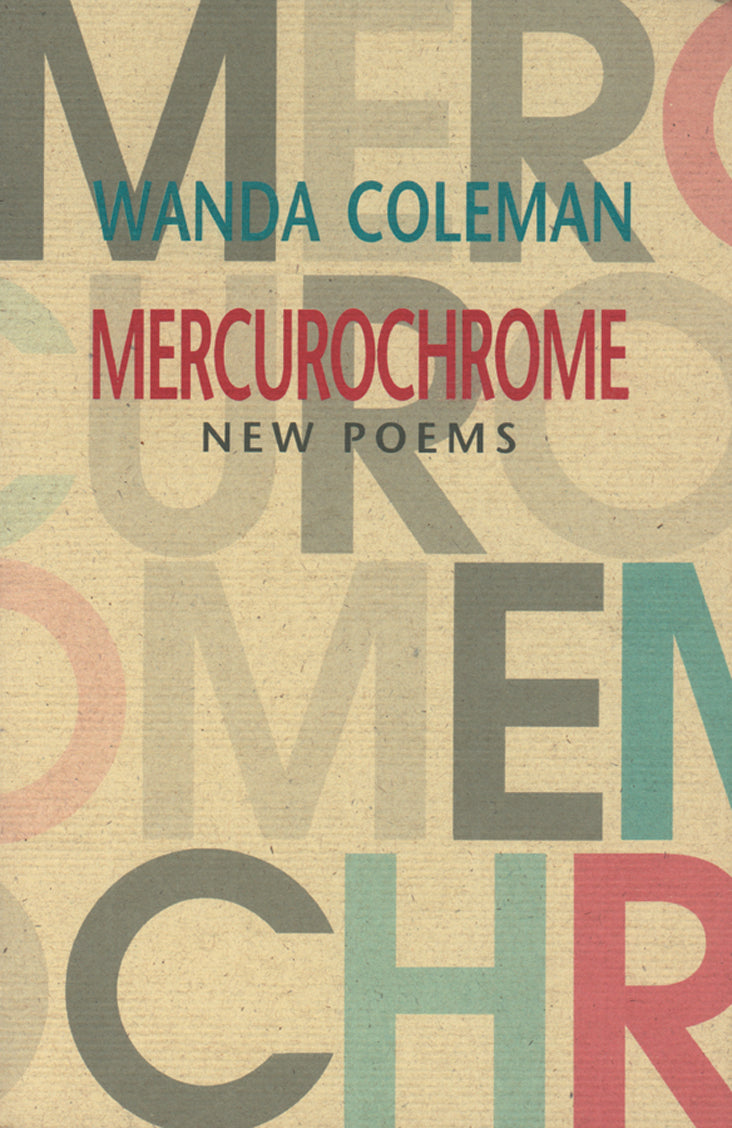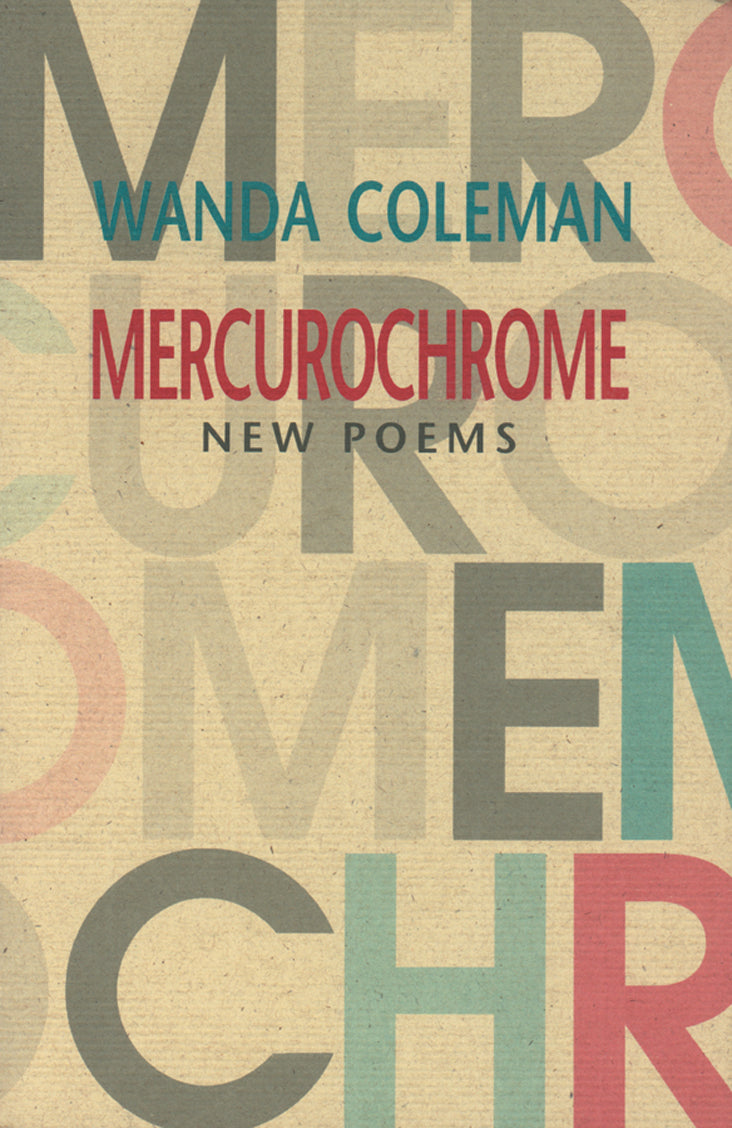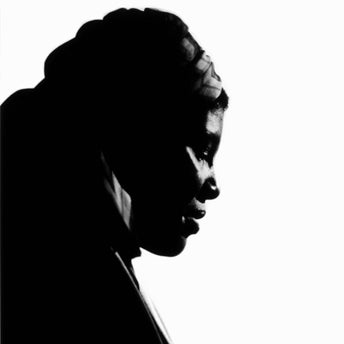
A self-made writer from Black Los Angeles who lived every day with racism, poverty, violence, the police, inequality. The triumph is in words that endure. “Having Lost My Son, I Confront the Wreckage.” “The Language Beneath the Language.” “They Will Not Be Poets.” “Dreams Without Means.” “American Sonnets.” This is vintage Coleman, the poet of the people.
National Book Award in Poetry finalist, Mercurochrome is one of Coleman’s most powerful collections. With humor, anger, and sorrow, she captures the deeply personal and societal forces of a Black working woman and mother, always behind in rent, always writing. She captured her world and its truths with beauty, harshness, clarity, and power. Through it all, there is passionate love and sexuality, humor and drama — her work is full of startling confession and breathtaking power.
love
as i live it seems more like mercurochrome
than anything else
i can conjure up. it looks so pretty and red,
and smells of a balmy
coolness when you uncap the little applicator.
but swab it on an
open sore and you nearly die under the stabbing
burn. recovery
leaves a vague tenderness
Terrance Hayes says, “Wanda Coleman was a great poet, a real in-the-flesh, flesh-eating poet who also happened to be a real black woman. Amid a life of single motherhood, multiple marriages, and multiple jobs that included waitress, medical file clerk, and screenwriter, she made poems. She denounced boredom, cowardice, the status quo. Few poets of any stripe write with as much forthrightness about poverty, about literary ambition, about depression, about our violent, fragile passions.”
A college drop-out, spurned by the literary establishment during her life, it's time for Wanda Coleman’s courageous, impassioned, one-of-a-kind voice to reach readers everywhere.
“In the decade since her death, Coleman’s greatness is gaining widespread recognition….Her radicalness here is not one of formal experimentation but of accountability for her damaged yet resilient psyche as a child born in 1946, during Jim Crow segregation. She gives voice to that which might otherwise remain unspoken.” — Adam Bradley, New York Times’ T Magazine

